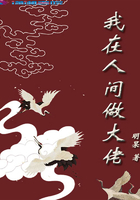She could speak well; her voice was sweet, her accent, caught from him, good; alone he never noticed any deficiencies, but if he met an English friend in Florence and brought him home to dine, then Ronald began to wish that Dora would leave off blushing and grow less shy, that she could talk a little more, and that he might lose all fear of her ****** some terrible blunder.
The third year of their married life dawned; Dora was just twenty, and Ronald twenty-three. There had been no rejoicing when he had attained his majority; it passed over unnoticed and unmarked. News came to them from England, letters from the little farm in Kent, telling of ****** home intelligence, and letters from Lady Earle, always sad and stained with tears. She had no good news to tell them. Lord Earle was well, but he would never allow his son's name to be mentioned before him, and she longed to see her son. In all her letters Lady Earle said: "Give my love to Dora."
In this, the third year of his married life, Ronald began to feel the pressure of poverty. His income was not more than three hundred a year. To Dora this seemed boundless riches; but the heir of Earlescourt had spent more in dress and cigars. Now debts began to press upon him, writing home he knew was useless.
He would not ask Lady Earle, although he knew that she would have parted with the last jewel in her case for him.
Ronald gave himself up to the study of painting. A pretty little studio was built, and Dora spent long hours in admiring both her husband and his work. He gave promise of being some day a good artist--not a genius. The world would never rave about his pictures; but, in time, he would be a conscientious, painstaking artist. Among his small coterie of friends some approved, others laughed.
"Why not go to the Jews?" asked fashionable young men.
"Earlescourt must be yours some day. You can borrow money if you like."
Ronald steadily refused to entertain the idea. He wondered at modern ideas of honor--that men saw no shame in borrowing upon the lives of their nearest and dearest, yet thought it a disgrace to be a follower of one of the grandest of arts. He made one compromise--that was for his father's sake. As an artist, he was known by Dora's name of Thorne, and, before long, Ronald Thorne's pictures were in great request. There was no dash of genius about them; but they were careful studies. Some few were sold, and the price realized proved no unwelcome addition to a small income.
Ronald became known in Florence. People who had not thought much of Mr. Earle were eager to know the clever artist and his pretty, shy wife. Then the trial of Ronald Earle began in earnest. Had he lived always away from the world, out of society, the chances are that his fate would have been different; but invitations began to pour in upon him and Dora, and Ronald, half tired of his solitude, although he never suspected it, accepted them eagerly.
Dora did not like the change; she felt lonely and lost where Ronald was so popular and so much at home.
Among those who eagerly sought Ronald's society was the pretty coquette, the Countess Rosali, an English lady who had married the Count Rosali, a Florentine noble of great wealth.
No one in Florence was half so popular as the fair countess.
Among the dark, glowing beauties of sunny Italy she was like a bright sunbeam. Her fair, piquant face was charming from its delicate bright coloring and gay smiles; her hair, of the rare color painted by the old masters, yet so seldom seen, was of pure golden hue, looking always as though the sun shone upon it.
Countess Rosali, there was no denying the fact, certainly did enjoy a little flirtation. Her grave, serious husband knew it, and looked on quite calmly. To his grave mind the pretty countess resembled a butterfly far more than a rational being.
He knew that, though she might laugh and talk to others, though she might seek admiration and enjoy delicate flattery, yet in her heart she was true as steel. She loved bright colors, and everything else that was gay and brilliant. She had gathered the roses; perhaps some one else had her share of thorns.
The fair, dainty lady had a great desire to see Mr. Thorne. She had seen one of his pictures at the house of one of her friends a ****** little thing, but it had charmed her. It was merely a bouquet of English wild flowers; but then they were so naturally painted! The bluebells looked as though they had just been gathered. One almost fancied dew drops on the delicate wild roses; a spray of pink hawthorn, daisies and golden buttercups mingled with woodbine and meadow-sweet, told sweet stories of the English meadows.
"Whoever painted that," said the fair countess, "loves flowers, and knows what English flowers mean."
The countess did not rest until Ronald had been introduced to her, and then she would know his wife. Her grave, silent husband smiled at her evident admiration of the handsome young Englishman. She liked his clear, Saxon face and fair hair; she liked his ******, kindly manner, so full of chivalry and truth.
She liked pretty Dora, too; but there were times when the dainty, fastidious countess looked at the young wife in wonder, for, as she said one evening to her husband:
"There is something in Mrs. Thorne that puzzles me--she does not always speak or look like a lady--"
Few days passed without bringing Ronald and Dora to the Villa Rosali. It would have been better for Ronald had he never left his pretty home on the banks of the Arno.















